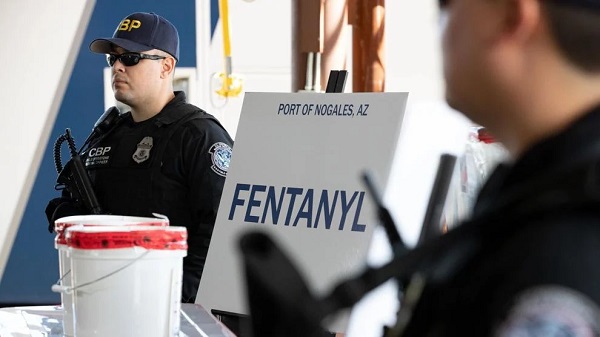Opinion
Why treating the Homesless as victims only makes the problem worse

This article is from Substack
Bestselling author Michael Shellenberger has just published a new book, “San Fransicko” about the homeless crisis in San Francisco. Shellenberger has lived in San Fransisco for 30 years. In “San Fransicko” Shellenberger argues one of the root causes of the homeless crisis sweeping cities all over America (and Canada) is the victimization of homeless people. In this article, Michael Shellenberger talks about the prevalent theory that homeless people are all victims as portrayed by TV Host John Oliver.
Why John Oliver Is Wrong About Homelessness
HBO TV Comedian Repeats Myth that the Homeless Are Just Poor People in Need of Subsidized Housing
The intelligent and hilarious HBO comedian John Oliver last night aired a 25-minute segment on homelessness. In it, he attributed homelessness to poverty, high rents, and NIMBY neighborhood activists who block new housing developments. Oliver showed interviews with homeless people who say they would like to work full-time but are unable to do so because they have to live in homeless shelters.
Unfortunately, Oliver’s segment repeated many myths that are easy to debunk. The vast majority of people we call “homeless” are suffering from serious mental illness, addiction, or both. We do a great job of helping mothers and others who don’t suffer from addiction or untreated mental illness to benefit from subsidized housing, but don’t mandate the psychiatric and addiction care that many “homeless” require. And the best-available, peer-reviewed science shows that “Housing First” agenda Oliver promotes fails on its own terms, worsens addiction, and is one of the main reasons homelessness has grown so much worse.
It’s true that we need more housing and voluntary addiction and psychiatric care, including what is called “permanent supportive housing” for people suffering from mental illness. In my new book, San Fransicko, I advocate for universal psychiatric care, drug treatment on demand, and building of more shelter space for the homeless. And Oliver is right that the U.S. lacks the social safety net that European and other developed nations have.
But Oliver badly misdescribes the problem. For example, he notes that some cities lack sufficient homeless shelter. But he doesn’t acknowledge that it has been “Housing First” homelessness advocates who caused the lack of shelter by demanding that funding be diverted to apartments often costing $750,000 each.
And Oliver promotes policies that have made addiction, mental illness, and homelessness worse. He claims homelessness causes addiction when it is far more often the other way around. And Oliver completely ignores the overwhelming body of scientific research showing that using housing as a reward for abstinence, rather than giving it away as a right, is essential to reducing homelessness by reducing addiction.
Oliver was wrong to encourage more of the same policies that caused homelessness to increase in the U.S. over the last decade, but also wrong for suggesting that anyone who disagreed with him were racist and NIMBY “dicks” who cause violence against homeless people. Oliver closes his segment by ridiculing a white woman who expresses concern about subsidized housing bringing the homeless into her neighborhood.
Why is that? Why does such an intelligent, thoughtful, and compassionate journalist repeat easily-debunked myths about homelessness?
Part of it is just ignorance. Oliver appears to have relied entirely on Housing First advocates and not read anything that questions their narrative. As I document in San Fransicko, homeless advocates are not just small service providers but major academics at top universities including Columbia University and University of California, San Francisco. Those “Housing First” advocates have received hundreds of millions in grants from Marc Benioff, John Arnold, George Soros, and other donors to promote the notion that Housing First works.
Another part of it is ideological. Housing First advocates believe that housing, not shelter, is a right, and that governments have a moral obligation to provide it. They have spent 20 years trying to prove that giving away housing to addicts and the mentally ill works, but the studies show that it fails to address addiction and thus even keep people in apartments at higher rates than other methods. The only thing proven to work is to make housing a reward for good behavior, mostly abstinence but also things like taking one’s psychiatric medicines, and going to work.
The dominant view among progressives of homelessness, drugs, and mental illness stems from victim ideology, which was born in the 1960s. Starting in the late 1960s, progressives attacked any effort to hold people who receive welfare or subsidized accountable as “blaming the victim.” Today, many progressives even view drug dealers as victims.
Victim ideology categorizes people as victims or oppressors, and argues that nothing should be demanded of people categorized as victims. This is terrible for the mentally ill, who often need to be coerced into taking their medicines, so they don’t end up breaking the law, hurting people or themselves, and winding up in prison. And this is terrible for addicts, who need to be arrested, when breaking laws related to their addiction, such as public drug use, shoplifting, and public defecation.
In the end, Oliver’s 25 minute segment on homelessness is a perfect encapsulation of victim ideology and why it is so wrong on both the facts and on ethics. On the facts, Oliver misdescribes a homeless woman who is likely suffering from mental illness and/or drug addiction as merely down on her luck. And Oliver mixes together apparently sober and sane homeless families, temporarily down on their luck, with people are on the street because of addiction and untreated mental illness. Doing so is wrong, analytically, but also wrong, morally, since most addicts and the mentally ill need something very different from just a subsidized apartment unit.
If we are to solve homelessness rather than make it worse, we need intelligent and thoughtful comedians and influencers like Oliver to do their homework, rather than to repeat myths. I researched and wrote San Fransicko, in part, to make it easier for people to get the facts, rather than repeat what we were told, and to see that there’s a better way to help the homeless, whether addicted to drugs, mentally ill, or not.
The good news is that the conversation around drugs and homelessness is changing rapidly because the situation on the ground has grown so much worse. Environmental Progress and the California Peace Coalition are at the very beginning of our efforts to educate journalists, policymakers, and the public. And San Fransicko was published just three weeks ago.
As time passes, many Americans will see the consequence of treating what is fundamentally a problem of untreated mental illness and addiction as a problem of poverty, high rents, and NIMBYs. And some of them, perhaps even comedians like John Oliver, will come to find humor, and humility, from the fact that so many of us got it so wrong.
Crime
The Uncomfortable Demographics of Islamist Bloodshed—and Why “Islamophobia” Deflection Increases the Threat


Addressing realities directly is the only path toward protecting communities, confronting extremism, and preventing further loss of life, Canadian national security expert argues.
After attacks by Islamic extremists, a familiar pattern follows. Debate erupts. Commentary and interviews flood the media. Op-eds, narratives, talking points, and competing interpretations proliferate in the immediate aftermath of bloodshed. The brief interval since the Bondi beach attack is no exception.
Many of these responses condemn the violence and call for solidarity between Muslims and non-Muslims, as well as for broader societal unity. Their core message is commendable, and I support it: extremist violence is horrific, societies must stand united, and communities most commonly targeted by Islamic extremists—Jews, Christians, non-Muslim minorities, and moderate Muslims—deserve to live in safety and be protected.
Yet many of these info-space engagements miss the mark or cater to a narrow audience of wonks. A recurring concern is that, at some point, many of these engagements suggest, infer, or outright insinuate that non-Muslims, or predominantly non-Muslim societies, are somehow expected or obligated to interpret these attacks through an Islamic or Muslim-impact lens. This framing is frequently reinforced by a familiar “not a true Muslim” narrative regarding the perpetrators, alongside warnings about the risks of Islamophobia.
These misaligned expectations collide with a number of uncomfortable but unavoidable truths. Extremist groups such as ISIS, Al-Qaeda, Hamas, Hezbollah, and decentralized attackers with no formal affiliations have repeatedly and explicitly justified their violence through interpretations of Islamic texts and Islamic history. While most Muslims reject these interpretations, it remains equally true that large, dynamic groups of Muslims worldwide do not—and that these groups are well prepared to, and regularly do, use violence to advance their version of Islam.
Islamic extremist movements do not, and did not, emerge in a vacuum. They draw from the broader Islamic context. This fact is observable, persistent, and cannot be wished or washed away, no matter how hard some may try or many may wish otherwise.
Given this reality, it follows that for most non-Muslims—many of whom do not have detailed knowledge of Islam, its internal theological debates, historical divisions, or political evolution—and for a considerable number of Muslims as well, Islamic extremist violence is perceived as connected to Islam as it manifests globally. This perception persists regardless of nuance, disclaimers, or internal distinctions within the faith and among its followers.
THE COST OF DENIAL AND DEFLECTION
Denying or deflecting from these observable connections prevents society from addressing the central issues following an Islamic extremist attack in a Western country: the fatalities and injuries, how the violence is perceived and experienced by surviving victims, how it is experienced and understood by the majority non-Muslim population, how it is interpreted by non-Muslim governments responsible for public safety, and how it is received by allied nations. Worse, refusing to confront these difficult truths—or branding legitimate concerns as Islamophobia—creates a vacuum, one readily filled by extremist voices and adversarial actors eager to poison and pollute the discussion.
Following such attacks, in addition to thinking first of the direct victims, I sympathize with my Muslim family, friends, colleagues, moderate Muslims worldwide, and Muslim victims of Islamic extremism, particularly given that anti-Muslim bigotry is a real problem they face. For Muslim victims of Islamic extremism, that bigotry constitutes a second blow they must endure. Personal sympathy, however, does not translate into an obligation to center Muslim communal concerns when they were not the targets of the attack. Nor does it impose a public obligation or override how societies can, do, or should process and respond to violence directed at them by Islamic extremists.
As it applies to the general public in Western nations, the principle is simple: there should be no expectation that non-Muslims consider Islam, inter-Islamic identity conflicts, internal theological disputes, or the broader impact on the global Muslim community, when responding to attacks carried out by Islamic extremists. That is, unless Muslims were the victims, in which case some consideration is appropriate.
Quite bluntly, non-Muslims are not required to do so and are entitled to reject and push back against any suggestion that they must or should. Pointedly, they are not Muslims, a fact far too many now seem to overlook.
The arguments presented here will be uncomfortable for many and will likely provoke polarizing discussion. Nonetheless, they articulate an important, human-centered position regarding how Islamic extremist attacks in Western nations are commonly interpreted and understood by non-Muslim majority populations.
Non-Muslims are free to give no consideration to Muslim interests at any time, particularly following an Islamic extremist attack against non-Muslims in a non-Muslim country. The sole exception is that governments retain an obligation to ensure the safety and protection of their Muslim citizens, who face real and heightened threats during these periods. This does not suggest that non-Muslims cannot consider Muslim community members; it simply affirms that they are under no obligation to do so.
The impulse for Muslims to distance moderate Muslims and Islam from extremist attacks—such as the targeting of Jews in Australia or foiled Christmas market plots in Poland and Germany—is understandable.
Muslims do so to protect their own interests, the interests of fellow Muslims, and the reputation of Islam itself. Yet this impulse frequently collapses into the “No True Scotsman” fallacy, pointing to peaceful Muslims as the baseline while asserting that the attackers were not “true Muslims.”
Such claims oversimplify the reality of Islam as it manifests globally and fail to address the legitimate political and social consequences that follow Islamic extremist attacks in predominantly non-Muslim Western societies. These deflections frequently produce unintended effects, such as strengthening anti-Muslim extremist sentiments and movements and undermining efforts to diminish them.
The central issue for public discourse after an Islamic extremist attack is not debating whether the perpetrators were “true” or “false” Muslims, nor assessing downstream impacts on Muslim communities—unless they were the targets.
It is a societal effort to understand why radical ideologies continue to emerge from varying—yet often overlapping—interpretations of Islam, how political struggles within the Muslim world contribute to these ideologies, and how non-Muslim-majority Western countries can realistically and effectively confront and mitigate threats related to Islamic extremism before the next attack occurs and more non-Muslim and Muslim lives are lost.
Addressing these realities directly is the only path toward protecting communities, confronting extremism, and preventing further loss of life.
Ian Bradbury, a global security specialist with over 25 years experience, transitioned from Defence and NatSec roles to found Terra Nova Strategic Management (2009) and 1NAEF (2014). A TEDx, UN, NATO, and Parliament speaker, he focuses on terrorism, hybrid warfare, conflict aid, stability operations, and geo-strategy.
The Bureau is a reader-supported publication.
To receive new posts and support my work, consider becoming a free or paid subscriber.
International
Bondi Beach Shows Why Self-Defense Is a Vital Right

By
Individuals and communities must take responsibility for their own safety.
|
||||||||||||||||||||||||||||||||||||||||||||||||||
|
|
||||||||||||||||||||||||||||||||||||||||||||||||||
|
||||||||||||||||||||||||||||||||||||||||||||||||||
|
||||||||||||||||||||||||||||||||||||||||||||||||||
|
||||||||||||||||||||||||||||||||||||||||||||||||||
|
||||||||||||||||||||||||||||||||||||||||||||||||||
|
||||||||||||||||||||||||||||||||||||||||||||||||||
|
||||||||||||||||||||||||||||||||||||||||||||||||||
|
||||||||||||||||||||||||||||||||||||||||||||||||||
|
||||||||||||||||||||||||||||||||||||||||||||||||||
|
||||||||||||||||||||||||||||||||||||||||||||||||||
|
||||||||||||||||||||||||||||||||||||||||||||||||||
-

 Alberta6 hours ago
Alberta6 hours agoDanielle Smith slams Skate Canada for stopping events in Alberta over ban on men in women’s sports
-

 Health23 hours ago
Health23 hours agoSaskatchewan woman approved for euthanasia urged to seek medical help in Canada rather than US
-

 Indigenous22 hours ago
Indigenous22 hours agoResidential school burials controversy continues to fuel wave of church arsons, new data suggests
-

 Health1 day ago
Health1 day agoCanadian gov’t considers sharing census data on gender-confused children
-

 International22 hours ago
International22 hours agoFBI didn’t think it had cause to raid Trump but DOJ did it anyway
-

 Crime2 days ago
Crime2 days agoTrump designates fentanyl a ‘weapon of mass destruction’
-

 Energy11 hours ago
Energy11 hours agoLiberals Twisted Themselves Into Pretzels Over Their Own Pipeline MOU
-

 Digital ID2 days ago
Digital ID2 days agoCanada releases new digital ID app for personal documents despite privacy concerns







